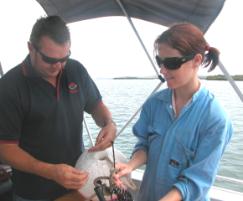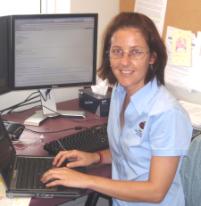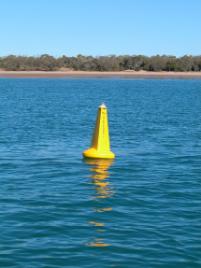Warm and cool waterways create a climate change laboratory
Published on 05 February, 2008
Researcher Dr Felicity Melville is in the early stages of an ecological experiment which has the rare mix of actual fieldwork conditions and the ability to adjust only one significant parameter.

Dr Felicity Melville with Captain Andrew Davis
"This will be one of the first studies to examine the ecological effects of a key aspect of climate change on site under real conditions," she said.
Dr Melville explains that the Calliope River estuary experiences water temperatures up to 4 degrees warmer than most other areas of Port Curtis, due to warm water effluent from a power station which has operated for about 30 years.
Meanwhile, the neighbouring Grahams Creek estuary has had very similar underlying conditions, except in terms of water temperature, providing an ideal reference site.
The research will focus on seaweeds and small marine creatures such as jellyfish, corals, clams, snails, crabs and prawns which are crucial to the health of the ecosystems and are a food source for higher-level creatures including fish.
"The resilience of these forms of marine life cannot be predicted with ease but we will be able to witness the direct effect of increased water temperature on their diversity and abundance," Dr Melville said.

Dr Felicity Melville back at base
Marking the test site

